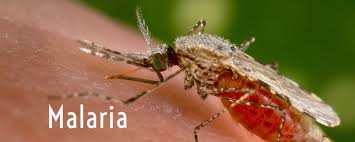By Muhammad Amaan
Heads of State and Government at the 79th United Nations General Assembly have warned that without an urgent increase in funding for malaria, the world might witness a devastating resurgence of the killer disease in the next five years.
The world leaders cautioned that failure to increase funding and intensify prevention efforts could lead to a resurgence that could cause an additional 137.2 million malaria cases and up to 337,000 deaths between 2027 and 2029.
According to them, if current funding levels are maintained there could still be 112 million more cases and 280 thousand deaths.
They expressed concerns over current threats impacting the fight against malaria.
Already, the latest malaria report by the World Health Organisation indicates that there are nearly 250 million cases and over 600,000 deaths per year, with young children and in the poorest countries mostly affected.
The world leaders warned ahead of the Global Fund Replenishment in 2025, following concerns from new modelling conducted by the Malaria Atlas Project, which reveals an additional 300,000 lives were in jeopardy.
The Global Fund to Fight AIDS, Tuberculosis and Malaria is one of the primary sources of funding for the control and elimination of all three diseases.
Funded largely by governments, it pools the world’s resources to fight AIDS, TB, and malaria, raising and investing money in three-year cycles known as Replenishments.
Giving insight into modeling, the RBM Partnership to End Malaria, said, “From the new models, if there is a flatlining of malaria resources (with the Global Fund Replenishment again achieving approximately $15.6 billion in total and allocations across the three diseases remaining on par with the current cycle). The world could see an additional 112 million malaria cases and up to 280,700 additional deaths across the three years, with upsurges and outbreaks happening right across the continent of Africa.”
It added that the situation would be even worse if the total Global Fund Replenishment saw a cut to resources and took funding away from malaria.
“In the event of a lower replenishment of $11 billion, and a reduction in the malaria allocation, the modelling forecasts we can expect an estimatedv137.2 million additional malaria cases and up to 337,000 additional malaria deaths”, RBM Partnership to End Malaria warned.
The new projections were raised by President Umaro Sissocco Embaló at a fireside chat titled “Confronting the Malaria Perfect Storm”, convened by the African Leaders Malaria Alliance, where they expressed concerns that malaria will quickly resurge if appropriate action is not taken in this Replenishment cycle.
The CEO of the RBM Partnership to End Malaria, Dr Michael Charles, said, “The evidence is clear that there is a significant risk of malaria epidemics if funding isn’t increased and high-burden areas are unable to deliver critical malaria prevention services.
“Unlike HIV and TB, malaria is concentrated in lower-income countries, particularly across Africa, so often these countries have the least ability to afford the fight.
“Everyone, no matter where they live, has a right to health. Malaria is straining health systems and making it difficult for people in low-income countries to fully enjoy their right to health.”
Charles said allocating the funds from the Global Fund Replenishment was complex, stressing that all three diseases urgently need attention.
“But it is crucial that malaria receives an increase in its funding from the Global Fund if we are to avoid a wide-scale resurgence. If this doesn’t happen, we can expect cases to spike and increased mortality. We already know this will impact women and young children hardest, as they are disproportionately affected by the disease.
“It will also push more people into poverty and overwhelm already fragile health systems, with economic consequences that will ripple across the world. We simply cannot afford to let this happen. The world has a duty to ensure our most vulnerable populations are not further disadvantaged and to do this we need to ensure the right funding is in place, starting with the global fund replenishment”, he said.




